pacific fleet
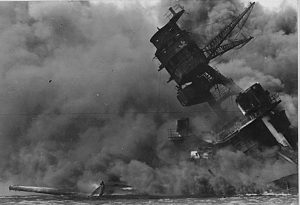
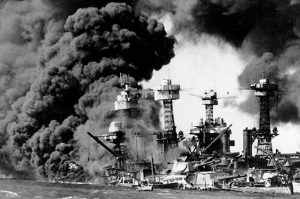 To call the Pearl Harbor attack, a “mistake on the part of the Japanese,” seems like a case of serious misinformation, on the part of the one who made such a comment, Admiral Chester A Nimitz. Nevertheless, that is what he said on Christmas Day, 1941, after he toured the destruction of his new duty station shortly after his Christmas Eve arrival. Anyone who would have heard Nemitz comments probably thought the new Commander of the Pacific Fleet might be just a little bit “off his rocker!!” Where everyone else saw all the ships sunken and knew of the 3,800 men who lost their lives that day, and in their minds, there was nothing good about all this, so what was the admiral thinking.
To call the Pearl Harbor attack, a “mistake on the part of the Japanese,” seems like a case of serious misinformation, on the part of the one who made such a comment, Admiral Chester A Nimitz. Nevertheless, that is what he said on Christmas Day, 1941, after he toured the destruction of his new duty station shortly after his Christmas Eve arrival. Anyone who would have heard Nemitz comments probably thought the new Commander of the Pacific Fleet might be just a little bit “off his rocker!!” Where everyone else saw all the ships sunken and knew of the 3,800 men who lost their lives that day, and in their minds, there was nothing good about all this, so what was the admiral thinking.
Sunday, December 7th, 1941, found Admiral Chester Nimitz attending a concert in Washington, DC. He received a page and was told that he had a phone call. On the other end was President Franklin Delano Roosevelt, who told Admiral Nimitz that his new assignment was to be the Commander of the Pacific Fleet. Admiral Nimitz flew to Hawaii to assume command of the Pacific Fleet, arriving to see such a spirit of despair, dejection, and defeat. It seemed that everyone thought the Japanese had already won the war. As the tour boat returned to dock, the young helmsman of the boat asked, “Well Admiral, what do you think after seeing all this destruction?” The admiral’s reply shocked everyone within the sound of his voice. Admiral Nimitz said, “The Japanese made three of the biggest mistakes an attack force could ever make, or God was taking care of America. Which do you think it was?” Shocked and surprised, the young helmsman asked, “What do mean by saying the Japanese made the three biggest mistakes an attack force ever made?”
What was meant, is really the difference between the thinking of an enlisted man, and the thinking of a great strategist, such as Admiral Nemitz was. I’m actually quite sure most of us would have fallen more in line with 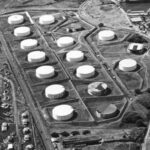
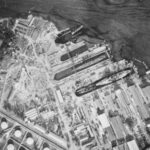 the enlisted helmsman…basically seeing the trees and missing the forest. So, Admiral Nemitz had to enlighten those around him. The first mistake made by the Japanese, is actually one I had heard before, and likely the “best” mistake for the people concerned. The attack on Pearl Harbor took place on a Sunday morning…when many of the men who might have been on the ships, were on leave. In fact, nine out of ten of the men stationed on the ships were on leave. That cut the loss of life down by 90%. As Admiral Nemitz told the people, “If those same ships had been lured to sea and been sunk–we would have lost 38,000 men instead of 3,800.” Now the Japanese had angered the “Sleeping Giant” that was the United States and left the majority of the fighting force to exact their revenge.
the enlisted helmsman…basically seeing the trees and missing the forest. So, Admiral Nemitz had to enlighten those around him. The first mistake made by the Japanese, is actually one I had heard before, and likely the “best” mistake for the people concerned. The attack on Pearl Harbor took place on a Sunday morning…when many of the men who might have been on the ships, were on leave. In fact, nine out of ten of the men stationed on the ships were on leave. That cut the loss of life down by 90%. As Admiral Nemitz told the people, “If those same ships had been lured to sea and been sunk–we would have lost 38,000 men instead of 3,800.” Now the Japanese had angered the “Sleeping Giant” that was the United States and left the majority of the fighting force to exact their revenge.
Of course, that was only their first mistake. Their second mistake was that when the Japanese saw all those battleships lined up in a row, they got so carried away sinking the battleships, they either didn’t notice, or forgot about the dry docks opposite those ships. Leaving the dry docks, meant that instead of towing every one of those ships to the America to be repaired, they could simply be raised from the shallow water they were in, and one tug could pull them over to the dry docks. Any salvageable ships could be repaired and back out at sea by the time they could have towed them to the America. Add that fact to the already established fact that Admiral Nemitz already had crews ashore anxious to man those ships. They were ready to fight.
The final mistake made by the Japanese was that they were either unaware of or forgot about the above-ground fuel storage tanks located just five miles away over the next hill. In fact, every drop of fuel in the Pacific theater of war was sitting out there in those tanks, and even if the ships were ready to go and fully manned, the lack of fuel would have prevented an attack on the Japanese fleet.
While everyone around him was thinking of the devastation and the defeat of the attack on Pearl Harbor, Admiral Nemitz saw the three biggest mistakes of the Japanese government, or as he preferred to call it, that 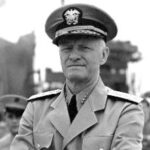
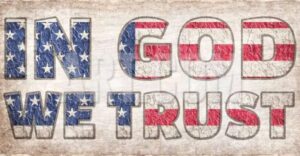 “God was taking care of America.” I tend to agree with Admiral Nemitz in that I, too, think it was God taking care of us. My thought is that the Japanese knew about the dry docks and the fuel storage, but in their “excitement” at pulling off the surprise attack, they forgot all about them. Of course, there is that first mistake of planning an attack of God’s Day. Seriously, they chose to take on the whole Pacific Fleet…and God too!! Wow!! It’s hard to be more “stupid” than that.
“God was taking care of America.” I tend to agree with Admiral Nemitz in that I, too, think it was God taking care of us. My thought is that the Japanese knew about the dry docks and the fuel storage, but in their “excitement” at pulling off the surprise attack, they forgot all about them. Of course, there is that first mistake of planning an attack of God’s Day. Seriously, they chose to take on the whole Pacific Fleet…and God too!! Wow!! It’s hard to be more “stupid” than that.
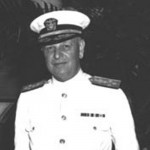 It seems that whenever something goes wrong in our world, someone must be to blame, and I believe that is often the case. The problem with playing The Blame Game, is that all too often, the person where the real blame should go is not the one who ends up taking the fall. Scapegoats have been around since Bible times, when the sins of the people were placed on a goat and it was sent into the windernesss. That isn’t the type of scapegoat that we see today, however.
It seems that whenever something goes wrong in our world, someone must be to blame, and I believe that is often the case. The problem with playing The Blame Game, is that all too often, the person where the real blame should go is not the one who ends up taking the fall. Scapegoats have been around since Bible times, when the sins of the people were placed on a goat and it was sent into the windernesss. That isn’t the type of scapegoat that we see today, however.
Don’t get me wrong, we all play The Blame Game, but politicians seem to be particularly adept at it. A good example is the forced retirement of Rear Admiral Husband E Kimmel, who was relieved of his command of the United States Pacific Fleet on December 17, 1941, just ten days after the Japanese attack on Pearl Harbor. I don’t say that he bore no blame at all, but in reality, he had no more reason to think that an attack on Pearl Harbor was imminent, than anyone else had. And in reality, the blame needed to fall on our President at the time, Franklin Delano Roosevelt, because he was soft on the Japanese, and basically asked us to trust them, when they were not at all 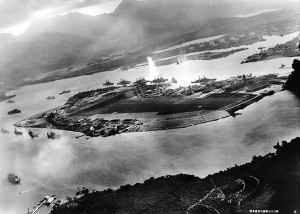 trustworthy. President Roosevelt’s actions…or lack thereof, left us sitting ducks when the Japanese made their move.
trustworthy. President Roosevelt’s actions…or lack thereof, left us sitting ducks when the Japanese made their move.
Basically, Rear Admiral Kimmel was chosen to take the blame because of his lack of imagination…or so it was said. Kimmel was a creature of habit, and he had expected an attack on Midway Island or Wake Island, and even went so far as to request extra antiaircraft artillery be sent there. None could be spared, and so was not sent. It never occurred to him that the Japanese might attack Pearl Harbor, and therefore he took no special action there. Unfortunately, Kimmel was an easy read by the Japanese, and when he chose not to protect Pearl Harbor, that was where the Japanese made their attack. But, as I said, he had no more reason to expect an attack at Pearl Harbor than anyone else had, and for that reason he should not have born the brunt of the blame.
Kimmel could have faced court martial…a second and even more severe injustice…but in the end, when he requested early retirement, his request was granted. The American people were outraged at this breach in 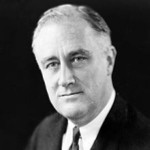 security, so someone had to take the blame. I really find that to be an unfair way to handle this situation, but it was how it was done anyway. When Admiral Kimmel’s Story, which was an “as told to” autobiography, was published in 1955, the admiral made it clear that he believed President Roosevelt sacrificed him, and his career, to take suspicion off himself. Although there was no evidence to prove it, Kimmel believed Roosevelt knew Pearl Harbor was going to be bombed. I’m not sure Roosevelt could have known that either, but I think he was just as much or more to blame than Kimmel was. There always seems to be enough blame to go around, but in reality, trusting our enemies will always bring bad results. We need to be watchful and strong in military might to keep this nation safe.
security, so someone had to take the blame. I really find that to be an unfair way to handle this situation, but it was how it was done anyway. When Admiral Kimmel’s Story, which was an “as told to” autobiography, was published in 1955, the admiral made it clear that he believed President Roosevelt sacrificed him, and his career, to take suspicion off himself. Although there was no evidence to prove it, Kimmel believed Roosevelt knew Pearl Harbor was going to be bombed. I’m not sure Roosevelt could have known that either, but I think he was just as much or more to blame than Kimmel was. There always seems to be enough blame to go around, but in reality, trusting our enemies will always bring bad results. We need to be watchful and strong in military might to keep this nation safe.
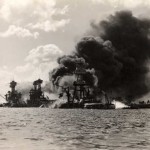 As the 73rd anniversary of the Japanese attack on Pearl Harbor dawns, I have to wonder why it is that the United States always feels that the other side must attack us first, and only then can we attack them. I know this is not always the case, but it seems like that is often the case. We try to be the peacemakers, and going to war is never something that we take lightly. Killing people is a horrible step to take. So, we always give warning after warning before we finally move, and even then it is usually too late to be the first to strike. I understand that the one who strikes first often looks like the bad guy, but it also seems like so often we are given much advance warning that a strike is eminent, and yet we wait…usually until after the attack happened and many people are dead, and the rest of us, while really angry, are too busy picking up the pieces to think about an immediate retaliatory strike.
As the 73rd anniversary of the Japanese attack on Pearl Harbor dawns, I have to wonder why it is that the United States always feels that the other side must attack us first, and only then can we attack them. I know this is not always the case, but it seems like that is often the case. We try to be the peacemakers, and going to war is never something that we take lightly. Killing people is a horrible step to take. So, we always give warning after warning before we finally move, and even then it is usually too late to be the first to strike. I understand that the one who strikes first often looks like the bad guy, but it also seems like so often we are given much advance warning that a strike is eminent, and yet we wait…usually until after the attack happened and many people are dead, and the rest of us, while really angry, are too busy picking up the pieces to think about an immediate retaliatory strike.
That was exactly where the United States found itself on December 7, 1941. We had warned Japan over and over, and with the Hull Note came the final warning. Even the fact that we knew that they would not comply, and we were in essence declaring war on Japan, we trusted them to move slowly…hoping for them to have a change of heart or something. They, on the other hand, acted almost immediately…or at least as immediate as they could back in 1941. They sent their strike force toward Pearl Harbor, while also sending a decoy strike force toward Thailand, in an effort to throw us off. Convinced that Japan was planning an attack on Thailand, President Roosevelt sent Emperor Hirohito a telegram, requesting that “for the sake of humanity,” the emperor intervene “to prevent further death and destruction in the world.” We were trying to be the peacemakers.
After sending the telegram, President Roosevelt was enjoying his stamp collection with his personal advisor, Harry Hopkins, and they were discussing the Japanese refusal to honor the Hull Note. Hopkins suggested that America should strike first, but President Roosevelt insisted that we could not do that. In reality, it was already to late for us to strike first. The Japanese were already on their way to attack Pearl Harbor, and a significant portion of the Pacific Fleet was there, anchored like sitting ducks, waiting for the attack. The ambush would take out 18 U.S. ships. Those destroyed, sunk, or capsized were the Arizona, Virginia, California, Nevada, and West Virginia. More than 180 planes were destroyed on the ground and another 150 were damaged, leaving only 43 planes operational. The American casualties totaled more than 3,400, with more than 2,400 killed…1,000 on the Arizona alone. The Japanese lost fewer than 100 men.
It seems to me that it is so often the side that strikes first…swiftly and with the element of surprise…that fares the best in the end. The side who was unaware, or didn’t heed the warning signs was slaughtered. We have one of the greatest military forces on the face of the earth here in America, so should we really ever be taken by surprise like that? I don’t think we should. I believe that if the strongman gets so sure of his might that he forgets the need to be watchful and wise, then when he least expects it, the strongman is caught unaware, and can be taken…even if his might should have prevented it. The United States has long been that strongman, and yet it seems that because of our hesitation to strike first, we are attacked over and over without warning. Then and only then, it seems, will we attack them in retaliation.
It is a dilemma I suppose, and maybe that was where President Roosevelt was coming from. We are the bad 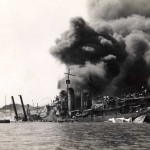 guys with the world if we attack first, and we are the bad guys with our own nation if we do not attack first. And, to top it off our intelligence isn’t always as reliable as it needs to be, so sometimes, such as on December the 7th, 1941, we are caught off guard, and completely by surprise, when we trusted an enemy to be as honorable as we try to be, and they feel no such obligation to honor. I guess that while we don’t like it when we are attacked without provocation, we must nevertheless, do the honorable thing, and not attack just because we anticipate an attack on us. If we were to do that, we would be no different than the nations we have to go to war with because they have invaded some other nation. Still, it is so hard to always be the nation that does the right thing, when we really don’t trust our enemies…because we know better.
guys with the world if we attack first, and we are the bad guys with our own nation if we do not attack first. And, to top it off our intelligence isn’t always as reliable as it needs to be, so sometimes, such as on December the 7th, 1941, we are caught off guard, and completely by surprise, when we trusted an enemy to be as honorable as we try to be, and they feel no such obligation to honor. I guess that while we don’t like it when we are attacked without provocation, we must nevertheless, do the honorable thing, and not attack just because we anticipate an attack on us. If we were to do that, we would be no different than the nations we have to go to war with because they have invaded some other nation. Still, it is so hard to always be the nation that does the right thing, when we really don’t trust our enemies…because we know better.

